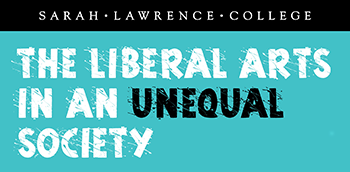Event Title
What Merit Means: College Admissions, Race, and Inequality in the United States and Britain
Location
Donnelley Theatre, Heimbold Visual Arts Center
Start Date
15-11-2014 11:30 AM
End Date
15-11-2014 12:15 PM
Abstract
In my talk I will discuss how students attending selective colleges make sense of the admissions process, and compare that meaning-making across the United States and Britain. While colleges have placed increased priority on attracting nontraditional students, simultaneously tuitions have risen and the preparation of students for admission has grown. Given this culture of admissions and public discussions about the underrepresentation of working class, black, and Latino students on selective college campuses, how do students make sense of the admissions process? I find that United States students calibrate their evaluations of merit, and emphasize the collective merit of their university cohorts, while British students espouse a universalist, individualist understanding of merit. Students in both national contexts reproduce the conceptions of merit espoused by their universities, which differ considerably between the United States and Britain. I conclude that in spite of a long history of student protest on college campuses, rather than engagement with symbolic politics on liberal-identified campuses, self-interest dominates student perspectives. It does so perhaps because students’ own status legitimation in extremely competitive admissions processes is at stake. Nevertheless, students in both national contexts are part of a colorblind, global elite that emphasizes fairness resulting from meritocracy, and that advocates cosmopolitanism without attention to inequality. I draw from 144 one-on-one in-depth interviews with undergraduates attending Harvard University, Brown University, and University of Oxford.
Presenter Biography
Natasha Warikoo is an Associate Professor at Harvard Graduate School of Education. Warikoo studies race, ethnicity and education, using the tools of the sociology of culture to reveal social and cultural processes in schools and universities. Her book, Balancing Acts: Youth Culture in the Global City (2011), analyzes how youth cultures among children of immigrants are related to their orientations toward schooling through ethnographic, interview, and survey data in diverse New York and London high schools. Balancing Acts won the Thomas and Znaneicki Best Book Award from the American Sociological Association’s International Migration Section. Warikoo spent the 2013-2014 year at the Russell Sage Foundation, where she worked on a project about the perspectives of students attending elite British and American universities on merit in admissions, inequality, and race. This project compares how national contexts, university practices, and race shape students’ meaning-making related to diversity and excellence. She is currently writing a book, What Merit Means: Admissions, Race, and Inequality at Elite Universities in the United States and Britain. Her research has been published in scholarly journals including American Journal of Education; British Education Research Journal; Poetics; Race, Ethnicity and Education; Racial and Ethnic Studies; Review of Educational Research; Sociological Forum; books and newspapers including Education Week, The Los Angeles Times, The Washington Post, and she has won grants and awards from American Sociological Association, the British Academy, National Science Foundation, Nuffield Foundation, and Russell Sage Foundation. She completed her Ph.D. in Sociology at Harvard University, and previously was on the faculty at University of London's School of Advanced Study. Prior to completing her Ph.D. Warikoo was a teacher in New York City's public schools for four years.
Streaming Media
What Merit Means: College Admissions, Race, and Inequality in the United States and Britain
Donnelley Theatre, Heimbold Visual Arts Center
In my talk I will discuss how students attending selective colleges make sense of the admissions process, and compare that meaning-making across the United States and Britain. While colleges have placed increased priority on attracting nontraditional students, simultaneously tuitions have risen and the preparation of students for admission has grown. Given this culture of admissions and public discussions about the underrepresentation of working class, black, and Latino students on selective college campuses, how do students make sense of the admissions process? I find that United States students calibrate their evaluations of merit, and emphasize the collective merit of their university cohorts, while British students espouse a universalist, individualist understanding of merit. Students in both national contexts reproduce the conceptions of merit espoused by their universities, which differ considerably between the United States and Britain. I conclude that in spite of a long history of student protest on college campuses, rather than engagement with symbolic politics on liberal-identified campuses, self-interest dominates student perspectives. It does so perhaps because students’ own status legitimation in extremely competitive admissions processes is at stake. Nevertheless, students in both national contexts are part of a colorblind, global elite that emphasizes fairness resulting from meritocracy, and that advocates cosmopolitanism without attention to inequality. I draw from 144 one-on-one in-depth interviews with undergraduates attending Harvard University, Brown University, and University of Oxford.



